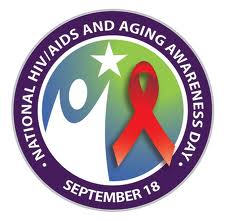The event was held in order to get feedback on the
kinds of support and services needed by this often-forgotten, often-stigmatized
group of people in my age group.
(A couple of asides: First, I like the use of
long-time versus long-term. Second, although some may disagree, I do not
consider myself a long-time survivor. Like Jim Eigo, I’m HIV-, and though I was
involved in the community in the 80s/early 90s, I still see myself as an
outsider. I consider myself an ally, nothing more, nothing less.)
The needs were many and varied: from the long-term
effects of powerful anti-retroviral drugs, to the stigma felt by gay and straight
long-time survivors, to the generational disconnect felt on both sides. Those
who did not expect to live to see their 25th birthdays are now
facing common aging issues complicated by their HIV status.
But the most emotional moments, at least for me,
came from those who strongly identified the most serious issues facing older
AIDS survivors as loneliness and isolation. There is an overwhelming need for
grief support groups for those who only now – 30+ years into the epidemic – are
finally beginning to confront the losses of dozens and even hundreds of their
friends.
They delayed their grief because they had to: they
had to take care of themselves and their friends, they had to fight for basic
rights of housing and health care, they had to fight a war – no time to enjoy
the luxury of grieving dozens of friends.
In the title of this post, I used the word “veterans”.
I did not use it lightly. It was deliberate.
There are striking similarities between those who
have been affected by AIDS and those who have served our country in the
military. Both groups suffer from survivor guilt, risk of suicide, complicated
health issues and stigma. Both groups have kept their experiences to
themselves, only willing to talk about the war many years later. Both share
strong support communities even while battling crippling loneliness.
Imagine if the war in Vietnam or Iraq or Afghanistan
had dragged on for 30 years, with no end in sight. That’s what it’s like to be
a veteran of the war against AIDS. Sometimes it feels like you’re winning,
sometimes you feel like you’re losing. Sometimes you’re on the front lines,
sometimes you’re sent back for a brief furlough before redeploying. Maybe you
mustered out. But the war goes on.
I never envisioned a day when we would need to
address the aging issues of men and women who are HIV+. And it’s not just
long-time survivors: in this article
from the CDC, we Baby Boomers (of whatever sexual orientation) are becoming
infected even now. Safe sex is not a topic of discussion at most retirement
communities.
And that’s why I challenge the AIDS community – in cities,
suburbs and rural areas – to hold listening sessions like the one I attended last
night, to determine the services needed by those aging with HIV. And to provide
grief support – individual therapy, groups, and online resources – to help them
process the grief for their friends that is only now rising up, and give them
some measure of peace.


